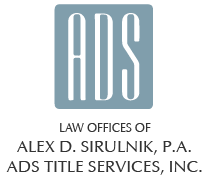
When entering into a lease agreement, whether as a landlord or tenant, proper lease preparation and review is essential. A well-drafted lease protects the interests of both parties and helps prevent potential disputes in the future.
Why You Need a Custom Leasing Program
Just as no two businesses are alike, no two lease agreements are the same either. Protect your business interests by creating detailed, accurate lease agreements with the help of our qualified attorneys. When doing so, here are some provisions to include.
- Clearly defined parties – The details of the parties involved must be included in the lease agreement. That means the full legal names of both the landlord and tenant, along with their contact information and any relevant business entities.
- Lease structure and term – Clearly state the duration of the lease, including the start and end dates. If the lease includes renewal options or termination notice requirements, specify the terms and conditions for exercising these options. It’s also essential to stipulate the lease structure. There are several types of commercial lease structures in Florida with a triple net (NNN) lease being one of the most common.
- Rent and payment terms – In your agreement, outline the rent amount, payment frequency (e.g., monthly, quarterly), and due dates. Include acceptable payment methods and any penalties for late payments. If there are provisions for rent increases or escalations, be sure to state how and when these adjustments will occur.
- Use and restrictions – Consider whether to include an exclusivity clause in your agreement as you define the permitted use of the leased property.
- Allowance for alterations and improvements – If the tenant is allowed to make alterations or improvements to the property, outline the process, permissions required and any restoration obligations at the end of the lease term. Also consider whether a tenant improvement allowance should be included. A tenant improvement allowance is money given by the landlord to a commercial tenant to help offset the costs of a renovation or improvements to the leased property. Improvement allowances are generally fixed-figure amounts that do not need to be repaid and are calculated based on a property’s square footage, although there are restrictions to how the money can be spent.
These and many other provisions of a Florida commercial lease agreement are up for negotiation during lease preparation and review. Before signing any commercial lease agreement, give us a call at the Law Offices of Alex D. Sirulnik, P.A. We will help you review and negotiate a strong and favorable lease agreement for your Florida business.



